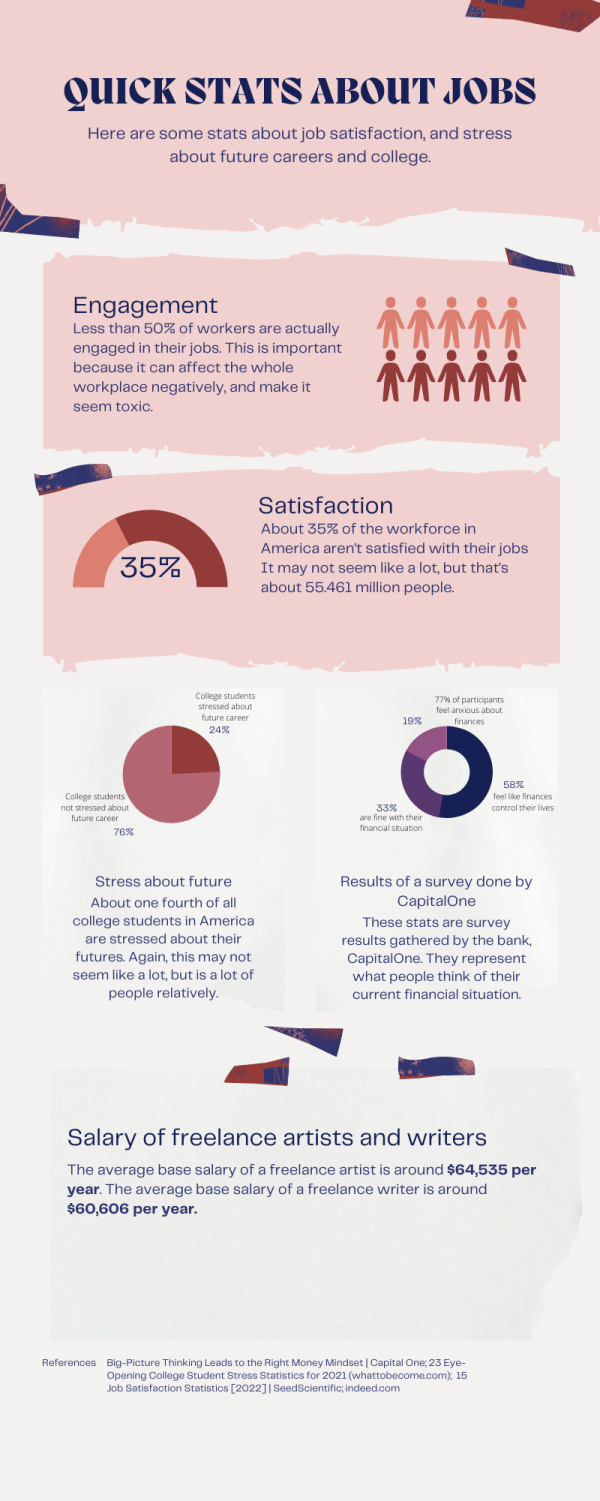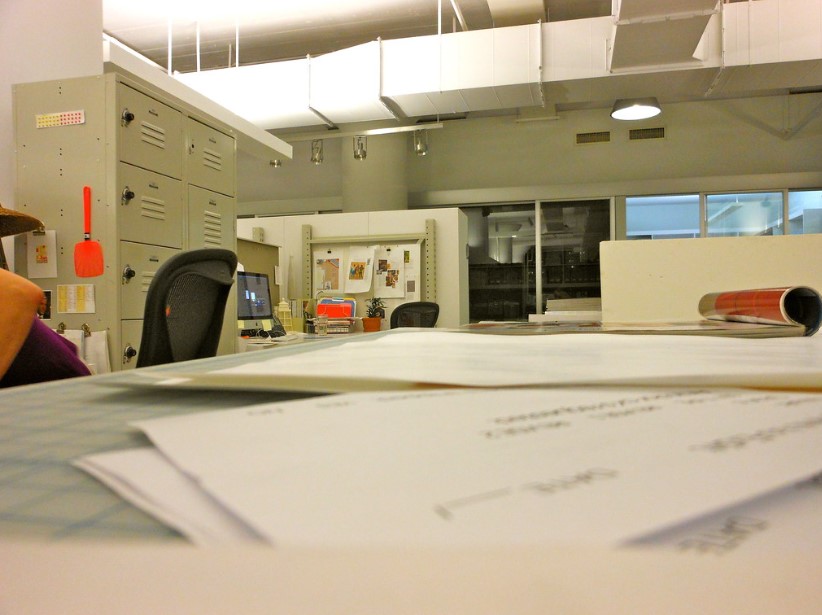The Weight of a Future Career
“What do you want to be when you grow up?” It’s a very common question adults ask kids. The question itself is pretty harmless, and most people just answer with “doctor” or “engineer” or something along those lines. However, when people get a little older, around high school, this question becomes serious. This can add a lot of stress for students, who are expected to basically have their whole life figured out before they’re even legally considered an adult. Outside forces, such as school, and parents, usually provide resources to help students find their career paths, but this isn’t always helpful. Students sometimes discover that their passions will lead them to financial instability, or they just simply can’t find anything that truly interests them.
As a result, many people find themselves stuck in a 9-5 job, with no way out if they want to maintain financial stability. To put this into perspective, about 158.46 million Americans are employed according to Statista. According to Earthweb, about 65% of Americans are satisfied with their job. This may seem like a lot, but if we do a little bit of math, we see that the absolute number is about 55.461 million. This is just accounting for the U.S.; in other places, such as Japan, the job dissatisfaction rate is much higher, at about 58% (ApolloTechnical). Sure, the economies of both these countries are thriving, but people are being turned into literal machines designed to just work.
Sometimes, students find that their passions will lead them to job rates that they can barely get by with. A good example of this is: professions in freelance art. To figure out why, let’s look at some quick economics to determine how wages are decided on. The amount of pay is determined by two main factors, the supply and demand of the job, much like how prices of products are determined in shops. Demand is the value a job brings, and is usually determined by the market (how much the market wants a certain profession). Supply is how easily replaceable a job is, and determined by how difficult it is to learn the job and how bad the job conditions are (the worse the conditions, the higher pay).
After that crash course on economics, we can look back at our artists. The conditions for most artists aren’t very bad, usually indoors, sometimes outdoors. Compared to other job conditions like factory workers or electricians, it’s not very bad. Art can either be easy or hard to learn. Certain pieces of art are extremely difficult to make, while some others can be easily made. Last, we look at market demand, the hardest part to determine. An artist and someone who’s not can interpret art in very different ways. This can make pricing a piece of art very difficult, as the buyer might price it as something much less than the artist sees it. Similar things can be said about professions such as freelance writing; the buyers can have a very different price than what the author originally intended.

Some might say that people should start learning how to make good choices from a young age. I agree, but it shouldn’t have to risk something as big as your enti
re career/future. According to NPR, a person’s brain doesn’t fully mature until the age of 25. A lot of adults over the age of 25 don’t even fully know what they want in life, so why should someone who is less developed be expected to?
Another argument that might be brought up is that the school and parents provide plenty of resources to find what you like. However, I would argue that that just puts more pressure to find a career path for the rest of your life, because you HAVE to know by the end of a certain time period. According to research.com, 24% of students are stressed about finding a job after college. Getting into the college wanted is even more difficult, most colleges only had about a 65% acceptance rate in 2017. In recent years, covid has amplified this stress (WhatToBecome). Also, many people are pressured into going down a career path just for the financial aspect of it, and end up hating it but having to stick with it due to the amount of money made.
There aren’t really many solutions for this problem, because this is something that is kind of ingrained into the fabric of society. If people don’t decide for themselves at that age, then they will grow up to be a failure. A potential solution is giving people more time to decide on what they want. I know undecided majors exist, but not all colleges offer them, and you only get two extra years of time. Also, there shouldn’t be so much pressure and societal expectation on minors to know what they want to do in the future. Offering easier ways to switch career paths can also be beneficial and giving people access to more financial plans/knowledge can also help. As for lost time, there isn’t really a way to get that back if it’s already been lost. The best remedy is to prevent this from happening in the first place.
Your donation will support the student journalists of West High School. Your contribution will allow us to purchase Scholarship Yearbooks, newsroom equipment and cover our annual website hosting costs.

Abby is a senior and this is her third year on staff. She is the Podcast and Tech Editor as well as the Video Co-Editor!



